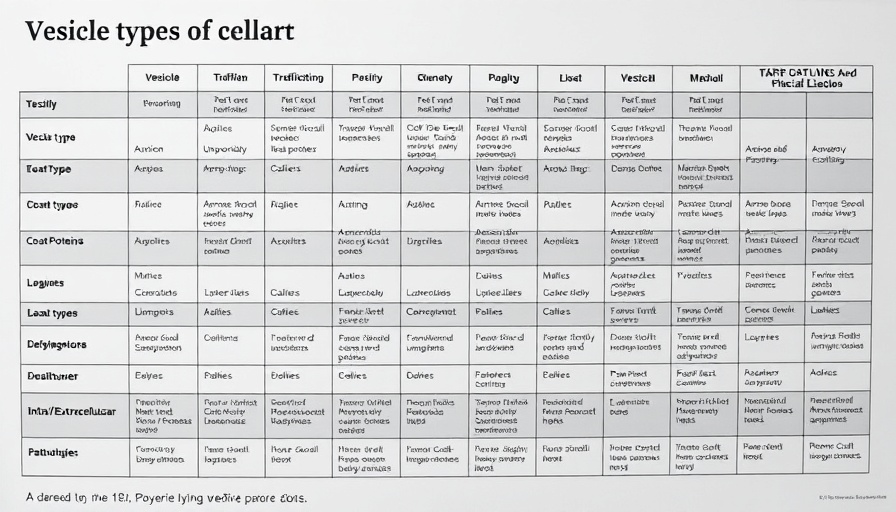
The Surprising Connection Between Taurine and Leukemia
Imagine the bone marrow as a bustling city, where various types of cells live and work together, ensuring that everything runs smoothly. Now, throw a leukemia diagnosis into the mix, and things can turn chaotic. A recent study by Sharma et al. reveals that this chaos can be attributed, in part, to a small molecule called taurine, which supports leukemia cells in their growth. Yes, you heard that right – taurine, often celebrated for its role in energy drinks and a few surprising health benefits, is now implicated in the messy world of blood cancer.
How Leukemia Hijacks its Nutrient Supply
As it turns out, myeloid leukemia cells have a sneaky way of commandeering taurine supplied by specialized cells in the bone marrow known as osteolineage cells. These cells are usually the good guys, supporting blood cell production. But when leukemia strikes, they unwittingly become part of the problem by nourishing the very enemy they should be fighting against. The study indicates that taurine fuels mTOR-driven glycolysis – this is a fancy way of saying that it helps cancer cells produce energy more efficiently, allowing them to thrive even when the body tries to rein them in with treatments targeting BCL-2, a key protein in cell survival.
The Implications of Taurine Inhibition
Investigating how taurine operates within the leukemia microenvironment could pave the way for new therapies. By blocking taurine uptake or its synthesis in niche cells, researchers have shown that they can slow down leukemia progression in murine models. This opens an intriguing avenue for focusing therapy on the niche rather than just the tumor itself, suggesting we could take down cancer cells by cutting off their food supply. As cancer continues to evolve, this niche-directed approach might be crucial for developing forward-thinking treatment strategies.
Insights from Single-Cell RNA Sequencing
The research underlines a broader trend in cancer studies: individual cellular behaviors matter a great deal. Using single-cell RNA sequencing, the study offers a granular look into how healthy bone marrow cells morph as leukemia progresses, which echoes previous findings about how leukemia alters the surrounding stroma (supportive tissue). This reflects a dynamic interplay where leukemia not only takes hold but also reshapes the very environment it inhabits, suggesting that understanding these changes could lead to targeted vulnerabilities ripe for exploitation in therapy.
Authenticity of Results in Human Cells
What makes this study even more compelling is that the findings aren’t limited to mice; similar patterns were noticed in human patients with acute myeloid leukemia (AML). Increased expression of CDO1, the enzyme responsible for taurine biosynthesis, was found in bone marrow stromal cells from patients whose leukemia had progressed, suggesting that these mechanisms are likely relevant in human disease. The idea that cells in the bone marrow might harbor and nurture leukemic cells adds a layer of complexity to our understanding of blood cancers.
Looking Ahead: The Future of Leukemia Therapy
The discovery that osteolineage cells contribute to leukemia progression invites us to rethink how we approach cancer treatment. Instead of solely focusing on attacking the cancer itself, could we instead redirect our strategies towards repairing the ecosystem within the bone marrow? The concept of a niche-directed therapeutic approach could lead us to exciting new therapies that target both the leukemia cells and their supportive stroma.
Simple Steps for Optimizing Health Amidst Research Advances
While advanced research like this is crucial for understanding diseases at a cellular level, maintaining overall health remains a personal responsibility. Now might be a good time to consider dietary approaches that optimize cellular health and longevity. Incorporating foods rich in antioxidants, like colorful fruits and vegetables, may help support your body's natural defenses. Additionally, supplements for longevity, such as omega-3 fatty acids and curcumin, could offer protective benefits that enhance wellness.
Take Action: Embrace the Future of Health Optimization
The findings in the study illuminate the complex world of leukemia and the role of the marrow niche in sustaining it. Armed with this knowledge, readers are encouraged to stay informed about ongoing research in cellular health, explore dietary supplements that can support longevity, and embrace biohacking tips that align with science-backed wellness strategies. Remember, knowledge is power – and in the battle against diseases like leukemia, every little bit counts!
 Add Row
Add Row  Add
Add 




 Add Row
Add Row  Add
Add 


Write A Comment